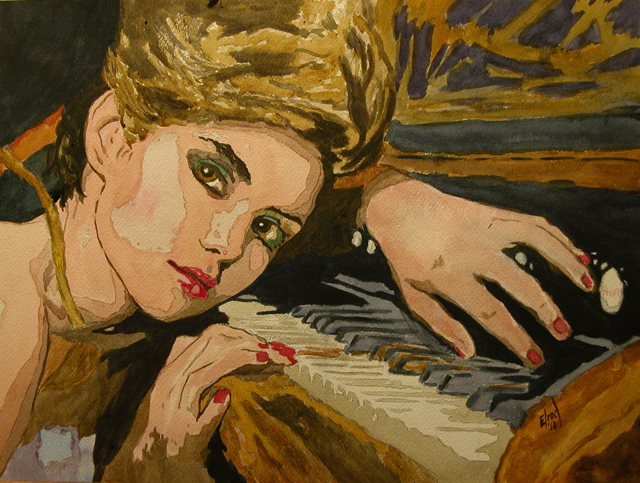
12 Jun2018

share



Charles Argersinger, a WSU professor of music and alumnus of the prestigious artists’ retreat Yaddo, chose his heart, and that has made all the difference. To read the full article go to research news
On the door outside Argersinger’s office in Kimbrough Hall is a quote by the late 19th century French composer Claude Debussy:
“There is no theory. You have only to listen. Pleasure is the law.”
The Debussy quote goes on,
“I love music passionately. And because l love it, I try to free it from barren traditions that stifle it. It is a free art gushing forth, an open-air art boundless as the elements, the wind, the sky, the sea. It must never be shut in and become an academic art.”
But for much of the 20th century, “modern” music was an academic art, Argersinger said. While the head/heart dichotomy is a gross generalization, he said, it is one way to understand the schism that occurred during the last century of American contemporary music.
Math vs. emotion
Starting in the 19th century and taking hold in the 20th, he said, composers, especially composers inside the academy, began creating symphonic and chamber music that was based more on mathematical concepts than emotional resonance. Instead of creating music out of harmonic dissonance leading eventually to consonance, this new music rejected the need for resolution and reveled in that. While the unresolved dissonance captured the angst of the 20th century – with two world wars and the threat of nuclear war literally shaking our world – it did not capture the eternal hope that Argersinger believes gives meaning to our lives and our music.
“I think the power of music – the great attraction of music – is the fact that it is an abstract analogy for our lives,” he said. Conflict, from small-scale annoyance over a parking ticket to divorce to war, is dissonance, he said, and the human impulse is to strive for resolution, to make order out of chaos.
“Life consists of an endless series of dissonance and resolution on a large and small scale,” he said, and great music presents the listener with a wonderful analogy for that struggle. “We are drawn to great music because it nourishes us,” he said.